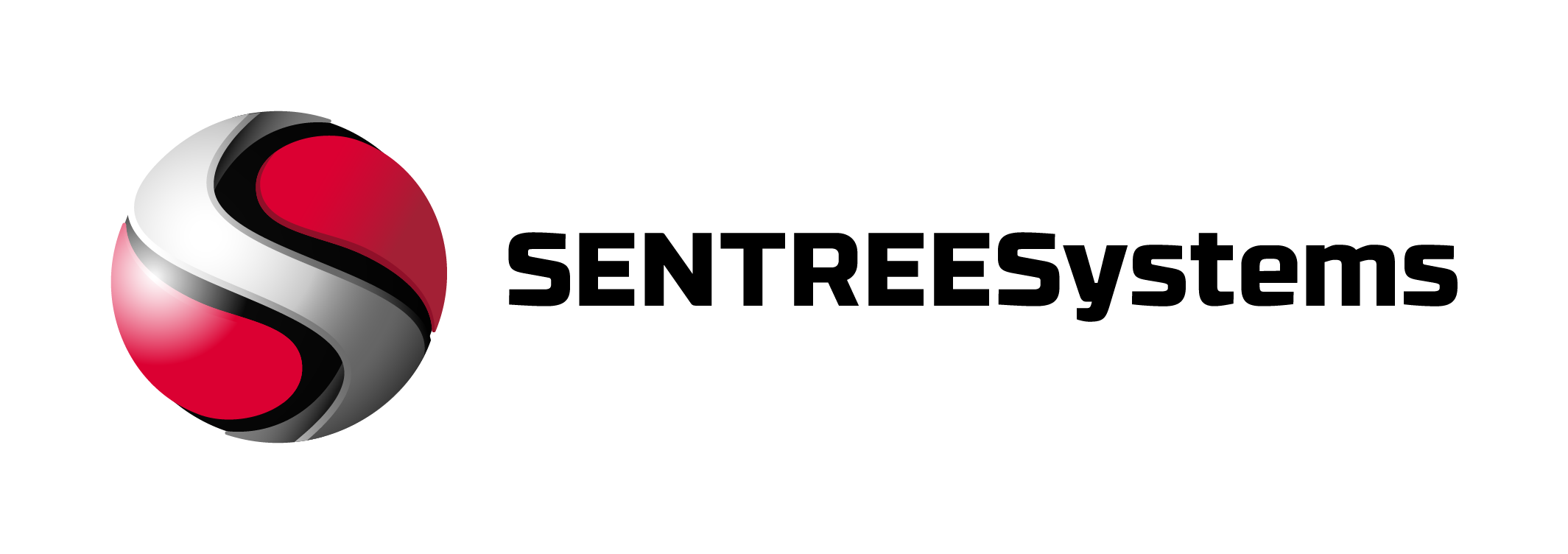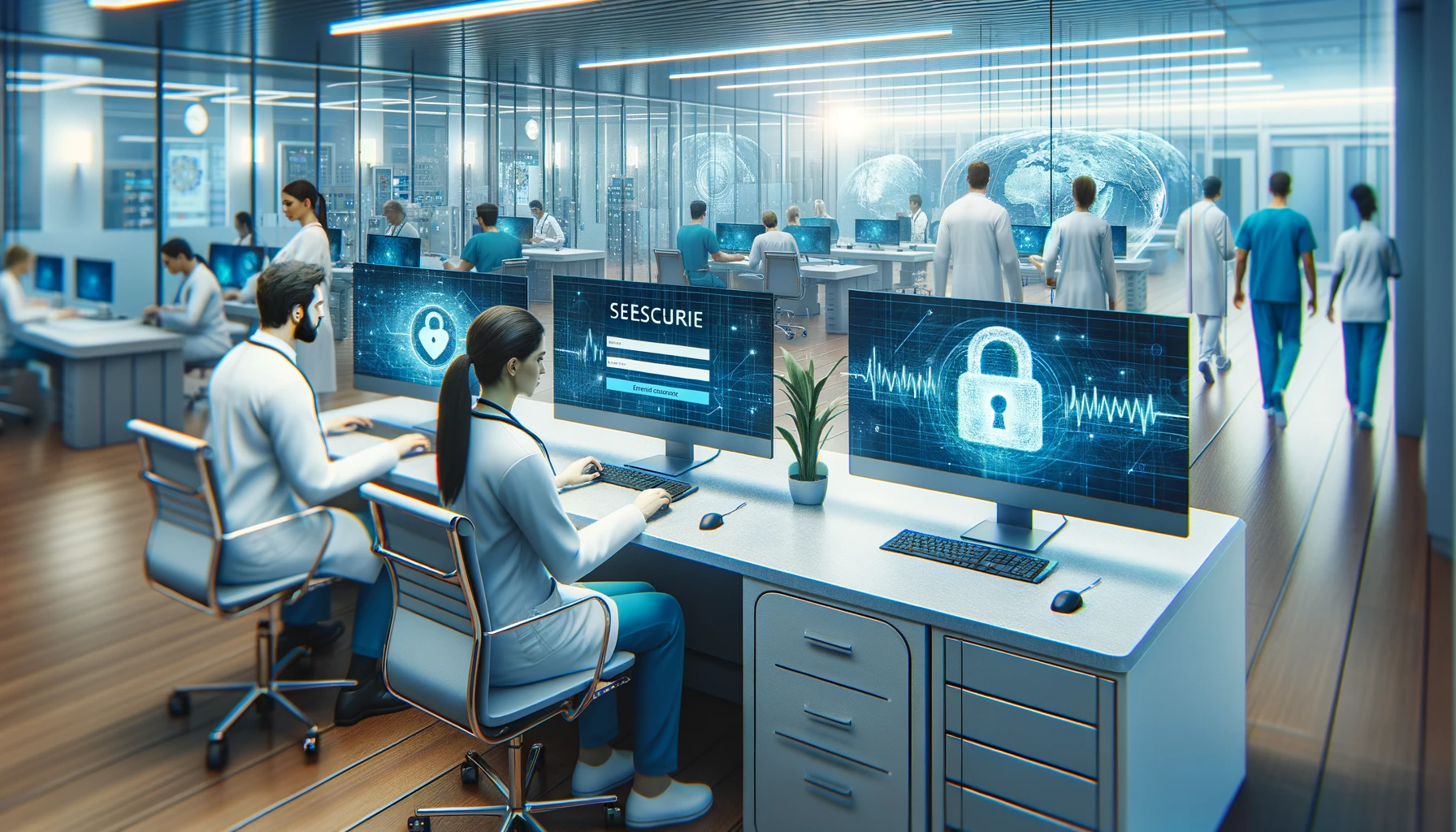In today’s digital age, cybersecurity threats pose a significant risk to the healthcare industry. With the increasing frequency of cyberattacks targeting sensitive patient information, it has become imperative for healthcare organizations to implement strong cybersecurity measures to safeguard against potential breaches. However, while doing so is critical for protecting patient data, it is important to consider how implementing strong cybersecurity measures will impact healthcare staff’s workflow.
The implementation of strong cybersecurity measures in the healthcare industry will undoubtedly have far-reaching implications for the daily workflow of healthcare staff. From improved data protection and secure communication to potential changes in access to patient records, it is crucial for healthcare professionals to understand the potential impacts of heightened cybersecurity measures on their daily operations.
Key Takeaways:
- Increased Awareness and Training: Implementing strong cybersecurity measures will require healthcare staff to be more aware of potential threats and undergo training on how to identify and respond to them.
- Adaptation of Standard Procedures: Staff will need to adapt their standard workflow procedures to incorporate additional security checks and measures, potentially impacting efficiency in the short term.
- Improved Data Protection: Strong cybersecurity measures will enhance the protection of sensitive patient data, ensuring compliance with privacy regulations and reducing the risk of costly breaches.
- Heightened Vigilance and Responsibility: Healthcare staff will need to remain vigilant and take responsibility for following cybersecurity protocols to prevent breaches and data exposure.
- Potential Challenges in Integration: Integrating new cybersecurity measures into existing workflows may present challenges and require additional time and resources to ensure smooth implementation.
- Shift in Priorities: With increased focus on cybersecurity, healthcare staff may need to allocate more time and attention to security measures, potentially shifting priorities in their daily tasks.
- Overall Benefits: Despite initial challenges, implementing strong cybersecurity measures will ultimately benefit healthcare staff by safeguarding patient data and improving overall security within the healthcare system.

Understanding the Cybersecurity Threat Landscape in Healthcare
Obviously, the healthcare industry is a prime target for cyber attacks due to the sensitive nature of the data it holds. Patient records, financial information, and intellectual property make healthcare organizations attractive to hackers. It is essential for healthcare staff to have a deep understanding of the cybersecurity threat landscape in order to effectively protect patient data and maintain the integrity of their systems.
Common Cyber Threats and Vulnerabilities
Threats such as ransomware, phishing attacks, and unauthorized access continue to present significant risks to healthcare organizations. Vulnerabilities in legacy systems and the increasing use of internet-connected medical devices also expose healthcare networks to potential breaches. It is crucial for staff to be aware of these threats and take proactive measures to mitigate the risks.
Case Studies of Cybersecurity Breaches in Healthcare
To illustrate the severity of cybersecurity breaches in healthcare, consider the following case studies:
- 2015 Anthem breach: Over 78.8 million records compromised due to a phishing attack.
- 2017 WannaCry ransomware attack: Disrupted healthcare services in the UK, impacting patient care.
- 2018 Singapore SingHealth breach: 1.5 million patient records accessed by unauthorized parties.
Breaches in healthcare continue to pose a serious threat to patient privacy and healthcare operations. The impact of these breaches can be devastating, both in terms of the financial and reputational damage to the organization, as well as the potential harm to patients.
The Role of Strong Cybersecurity Measures
Some may wonder, what exactly is the role of strong cybersecurity measures in the healthcare industry? Well, it is undeniable that in today’s digital age, cybersecurity is crucial for protecting sensitive patient information and maintaining the integrity of healthcare systems. With the ever-increasing number of cyber threats, it is imperative for healthcare organizations to prioritize the implementation of robust cybersecurity measures to safeguard patient data and secure their systems.
Definition and Components of Strong Cybersecurity Practices
On the front lines of cybersecurity in healthcare are the measures and practices that make up the foundation of a strong defense system. These include but are not limited to, encryption of data, firewalls, multi-factor authentication, regular system updates, and employee training in cybersecurity best practices. Each of these components plays a critical role in fortifying the defenses of healthcare systems and preventing potential cyber attacks.
On the other hand, failing to implement these cybersecurity practices can leave healthcare organizations vulnerable to data breaches, ransomware attacks, and other serious security threats. The consequences of such breaches not only include the compromise of patient information but also the disruption of healthcare services, potential financial loss, and damage to the organization’s reputation.
Regulatory Frameworks and Compliance Requirements
On the regulatory side, healthcare organizations must adhere to strict standards and compliance requirements set forth by governing bodies such as HIPAA, GDPR, and the HITECH Act. These frameworks establish guidelines and protocols for safeguarding patient data, and failure to comply with these regulations can result in severe penalties and legal consequences for healthcare organizations.
Cybersecurity is not just about safeguarding patient data, it is also about ensuring that healthcare staff can carry out their duties efficiently and securely. By integrating regulatory frameworks with robust cybersecurity measures, healthcare organizations can create a secure environment that enables staff to focus on providing quality care to their patients without the added worry of potential security breaches.
Impact on Healthcare Staff Workflow
Your healthcare staff’s daily operations and workflows will undoubtedly be affected by the implementation of strong cybersecurity measures. It is important to understand how these changes will impact the way your team operates and the additional training and education requirements that will come with it.
Changes to Daily Operations
To ensure the security of patient data, healthcare staff will need to adapt their daily operations. This may include additional steps to access and input patient information, as well as increased vigilance in identifying and reporting any potential cybersecurity threats. It is essential that workflow modifications are implemented seamlessly to ensure minimal disruption to patient care.
Training and Education Requirements
Workflow changes will necessitate additional training and education for healthcare staff to ensure they are equipped to navigate the new cybersecurity protocols. This may include learning new software systems and tools, understanding security best practices, and being able to identify and respond to potential threats.
For instance, staff may need to undergo regular training on how to recognize and respond to phishing attempts, as well as understanding the importance of regularly updating passwords and securing workstations. These additional requirements will be crucial in ensuring the overall security and integrity of patient information.
Adopting a Culture of Security
Now, let’s discuss the importance of adopting a culture of security within the healthcare industry. As the threat landscape continues to evolve, it is critical for organizations to prioritize cybersecurity and instill a mindset of vigilance and responsibility among healthcare staff.
Shift in Mindset and Attitudes Towards Cybersecurity
With the implementation of strong cybersecurity measures, there will be a necessary shift in mindset and attitudes towards cybersecurity among healthcare staff. It is imperative for staff to understand that cybersecurity is not just the responsibility of the IT department, but a collective effort to protect patient data and the overall integrity of the organization.
Inclusion of Cybersecurity in Organizational Values
Inclusion of cybersecurity in organizational values will further emphasize the importance of cybersecurity as a foundational principle within healthcare organizations. It should be integrated into the fabric of the organization’s culture, reflected in its mission statements, and reinforced through consistent training and communication.
It is essential for healthcare organizations to foster a culture of security, where cybersecurity is ingrained in daily operations, decision-making processes, and staff behavior. By incorporating cybersecurity into organizational values, it sends a clear message to staff that it is a top priority and empowers them to be vigilant and proactive in safeguarding sensitive data.
Technological Solutions and Their Integration
To effectively implement strong cybersecurity measures in healthcare, technological solutions must be integrated into existing workflows. These solutions should prioritize secure communication platforms and advanced authentication methods to ensure the protection of sensitive patient data.
Secure Communication Platforms
The use of secure communication platforms is essential in healthcare settings to protect patient confidentiality and streamline communication among staff members. These platforms allow for encrypted messaging, secure file sharing, and remote access to patient information, all while maintaining compliance with data protection regulations.
Advanced Authentication Methods
On top of secure communication, advanced authentication methods such as biometric recognition and multi-factor authentication play a crucial role in verifying the identity of healthcare staff accessing sensitive data. These methods add an extra layer of security, reducing the risk of unauthorized access to patient records and other confidential information.
| Biometric Recognition | Utilizes unique biological traits like fingerprints or facial recognition to verify identity |
| Multi-Factor Authentication | Requires two or more forms of verification, such as a password and a unique code sent to a mobile device |
Platforms incorporating these advanced authentication methods strengthen access controls and minimize the risk of data breaches in the healthcare environment, ultimately contributing to a more secure workflow for staff.
Balancing Usability with Security
Not only is it essential to have strong cybersecurity measures in place to protect sensitive healthcare data, but it is also crucial to ensure that these measures do not impede the workflow of healthcare staff. Balancing usability with security is a delicate task that requires thoughtful consideration and strategic implementation.
User-Friendly Security Protocols
On the one hand, implementing user-friendly security protocols is vital to ensure that healthcare staff can easily navigate through the system without feeling overwhelmed by complex security measures. This can be achieved through the use of intuitive interfaces, clear guidelines, and user-friendly training that enable staff to understand and comply with security protocols without hindering their ability to provide care.
Maintaining Efficiency While Ensuring Data Protection
Data protection is of utmost importance in healthcare, but it should not come at the expense of efficiency. Healthcare staff need to be able to access and input patient information swiftly and accurately without being slowed down by cumbersome security measures. Maintaining efficiency while ensuring data protection involves implementing streamlined authentication processes, leveraging automation where possible, and providing adequate support for staff to navigate security measures seamlessly.
Maintaining efficiency while ensuring data protection is critical for the seamless operation of healthcare facilities. By implementing user-friendly security protocols and maintaining efficiency, healthcare staff can strike the delicate balance between usability and security, ultimately enhancing the overall workflow while safeguarding sensitive patient data.
Monitoring and Continual Improvement of Security Practices
For healthcare organizations, implementing strong cybersecurity measures is not a one-time effort. It requires constant monitoring and continual improvement to stay ahead of cyber threats and protect patient information. This chapter will discuss the importance of regular audits and assessments as well as the need for adapting to evolving cyber threats in the healthcare industry.
Regular Audits and Assessments
Improvement in security practices is not possible without a clear understanding of the current state of an organization’s cybersecurity measures. Regular audits and assessments help healthcare staff identify vulnerabilities, assess risks, and implement necessary improvements. These regular evaluations also help in demonstrating compliance with regulatory standards and industry best practices.
Adapting to Evolving Cyber Threats
To effectively protect sensitive patient information, healthcare organizations must continuously adapt and respond to evolving cyber threats. As cyber criminals become more sophisticated, the healthcare industry must stay vigilant and update security measures accordingly. This may involve implementing new technologies, enhancing employee training, and collaborating with cybersecurity experts to stay ahead of potential risks.
Monitoring and staying updated on the latest cyber threats is crucial to prevent data breaches and protect patient information. It also allows healthcare staff to proactively address any vulnerabilities before they are exploited by malicious actors.

FAQ
Q: How will implementing strong cybersecurity measures impact healthcare staff’s workflow?
A: Implementing strong cybersecurity measures in healthcare will require staff to adhere to stricter protocols and guidelines for accessing patient information and using technology. This may initially slow down some processes, but ultimately it will ensure the safety and confidentiality of patient data, leading to more efficient and secure workflows in the long run.
Q: Will strong cybersecurity measures add extra tasks for healthcare staff?
A: Yes, implementing strong cybersecurity measures may require healthcare staff to undergo additional training and be more vigilant in following new protocols. However, this proactive approach is essential for protecting sensitive patient data from cyber threats and will ultimately benefit both the staff and the patients.
Q: How can strong cybersecurity measures improve healthcare staff’s workflow?
A: Strong cybersecurity measures can improve healthcare staff’s workflow by ensuring that they have secure and reliable access to patient data and communication tools. This can streamline processes, reduce the risk of data breaches, and ultimately allow staff to focus more on patient care rather than worrying about security issues.
Q: What challenges may healthcare staff face when implementing strong cybersecurity measures?
A: Healthcare staff may face challenges such as adapting to new technology, integrating cybersecurity protocols into their daily routines, and maintaining a balance between security and workflow efficiency. However, with the right support and resources, these challenges can be overcome, and staff can effectively incorporate strong cybersecurity measures into their workflows.
Q: How will strong cybersecurity measures impact patient care and safety?
A: Strong cybersecurity measures will significantly impact patient care and safety by ensuring the confidentiality, integrity, and availability of their sensitive medical information. This will build trust between healthcare providers and patients, protect against cyber threats that could compromise patient safety, and ultimately improve the overall quality of care provided.



